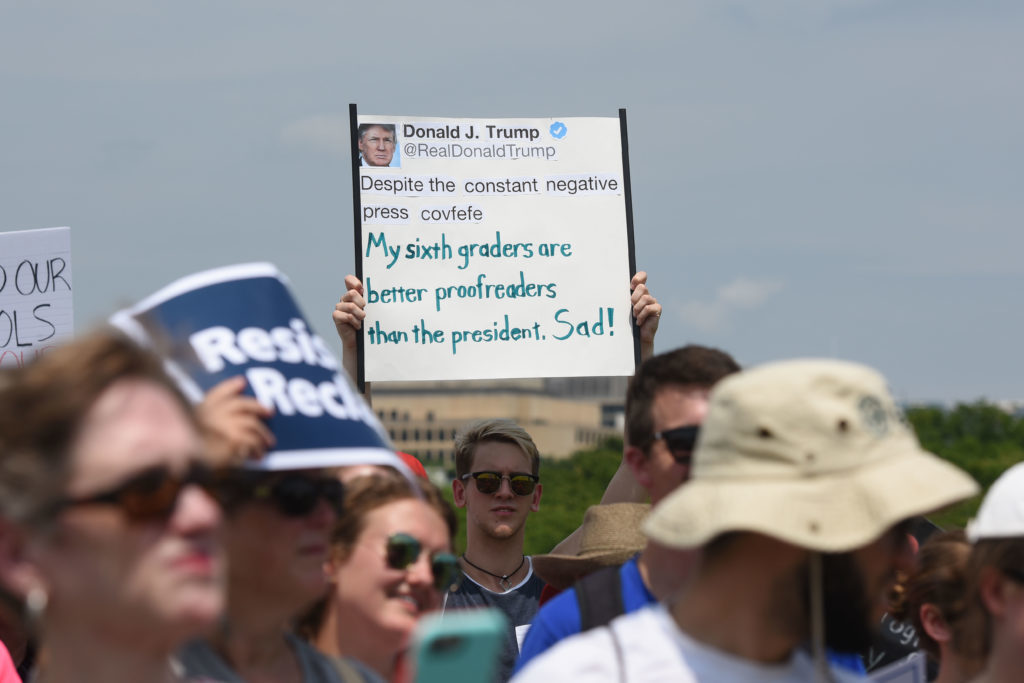Hundreds gathered on the National Mall in the blistering heat Saturday afternoon to protest federal proposals that would give students and their families easier access to public school alternatives.
After a proposed expansion of a voucher program by the Department of Education that demonstrators said would threaten and potentially defund public school systems in the United States, teachers, students and activists gathered in D.C. and 11 other cities to protest in a “March for Public Education.” Protesters also voiced concern about soaring college tuition and budget cuts for special education and arts programs.
“An investment in our schools is an investment in our country’s future; strong students grow into strong leaders. Washington, D.C. must commit to protecting and elevating our nation’s public education system,” the organizers wrote in a statement on the march’s website. “No child should be required to pay for his or her right to learn.”
Protesters held up signs with phrases like “Strength in unity, not in hatred,” and “Black minds matter.” Marching from the base of the Washington Monument to the Department of Education building, demonstrators chanted “Nothing about us without us,” and “We stand, we fight, education is a human right.”
Some students spoke to marchers about the impact a public school education had on their lives. Joseline Garcia, vice president of the United States Student Association, said without her family’s struggle she wouldn’t have appreciated the value of public schools for underprivileged students.
“My parents had little to no education but they understood the pipeline of opportunities it creates,” Garcia said. “How can we expect our marginalized communities to achieve the American Dream when it is becoming less and less attainable? People on the Hill and in state capitals need to work to make education more accessible, not students.”
Other students talked about their experiences in public special education systems, programs that may have their funding cut under the Trump administration’s proposed budget.
“At 8 years old I was diagnosed with ADHD and dyslexia,” Leslie Templeton, a student at Boston College, told the crowd. “I am one of 13 percent of students who use public special education programs and I am a functioning member of society. We owe it to our students with disabilities to have fully funded services.”
National Education Association President Lily Eskelsen Garcia said the school choice voucher programs championed by Education Secretary Betsy DeVos would have an adverse impact on children enrolled in public schools, particularly in impoverished communities. She said the success of fully-funded districts shows that the system works well when it is financially supported.
“Our goal: every public school should look like our best public school,” she said. “We know exactly what students need.”





